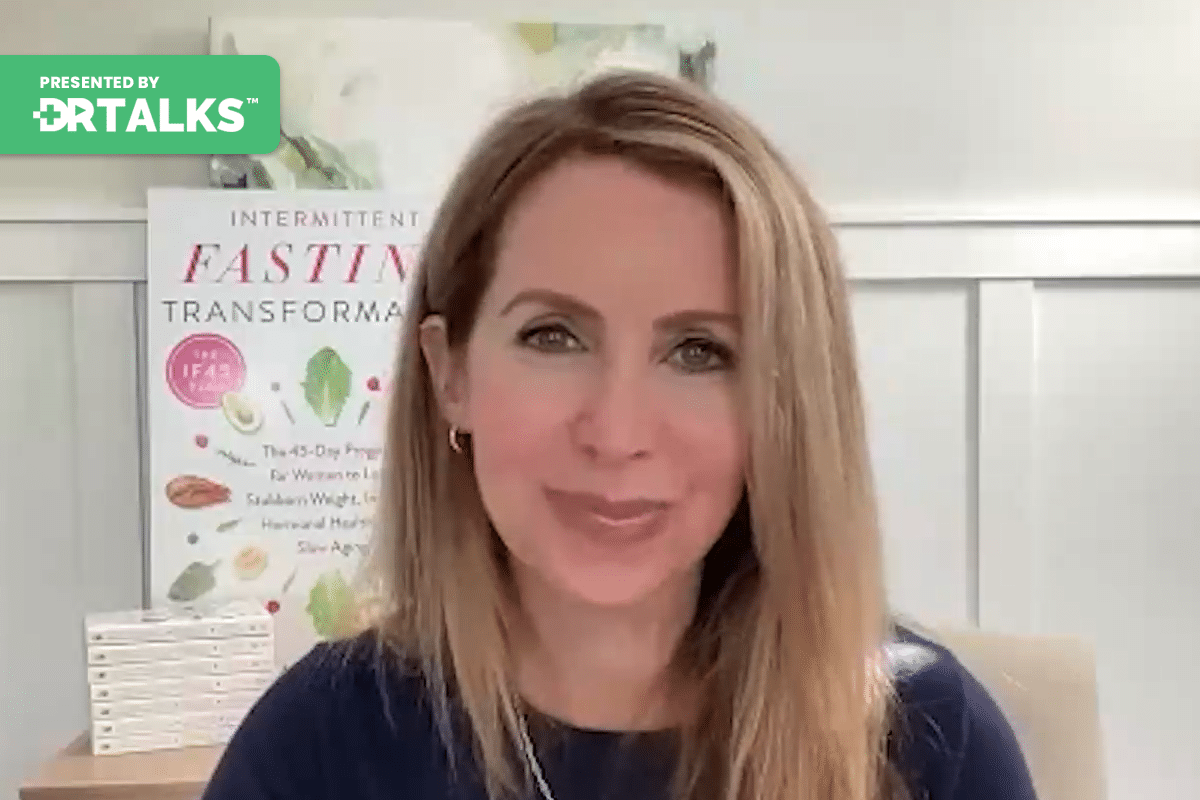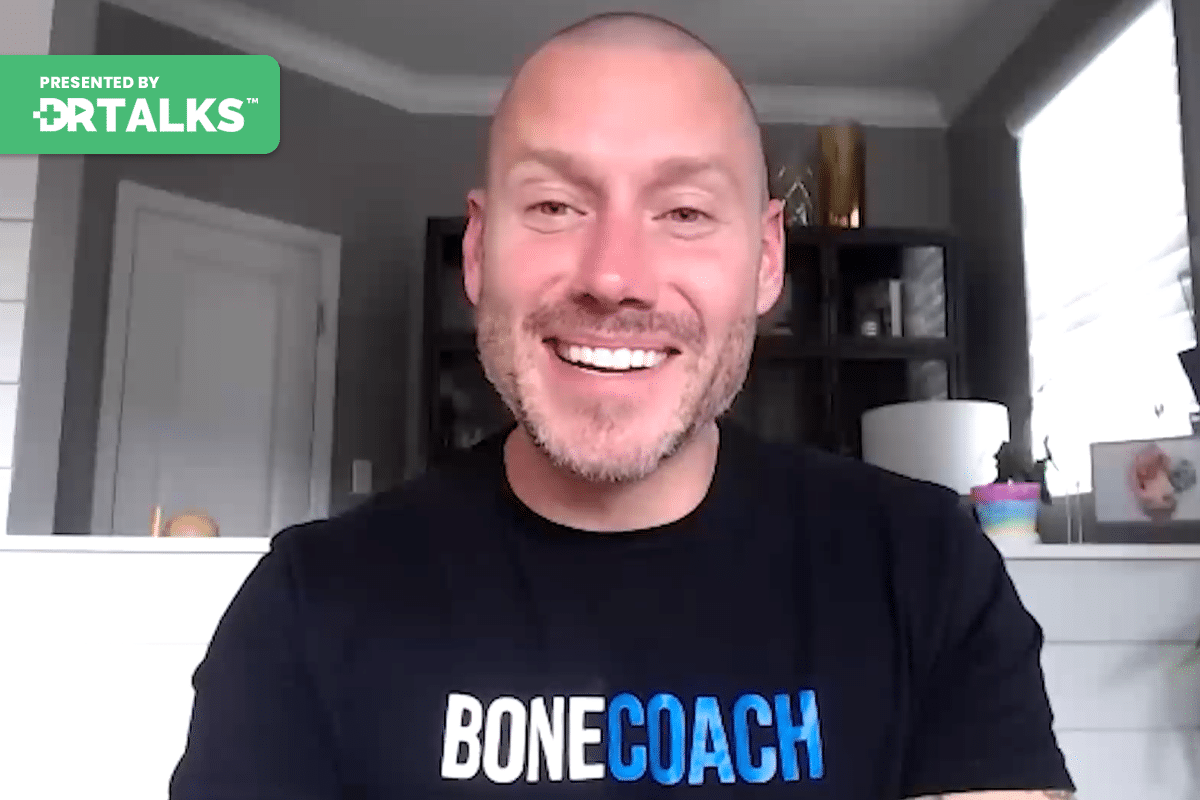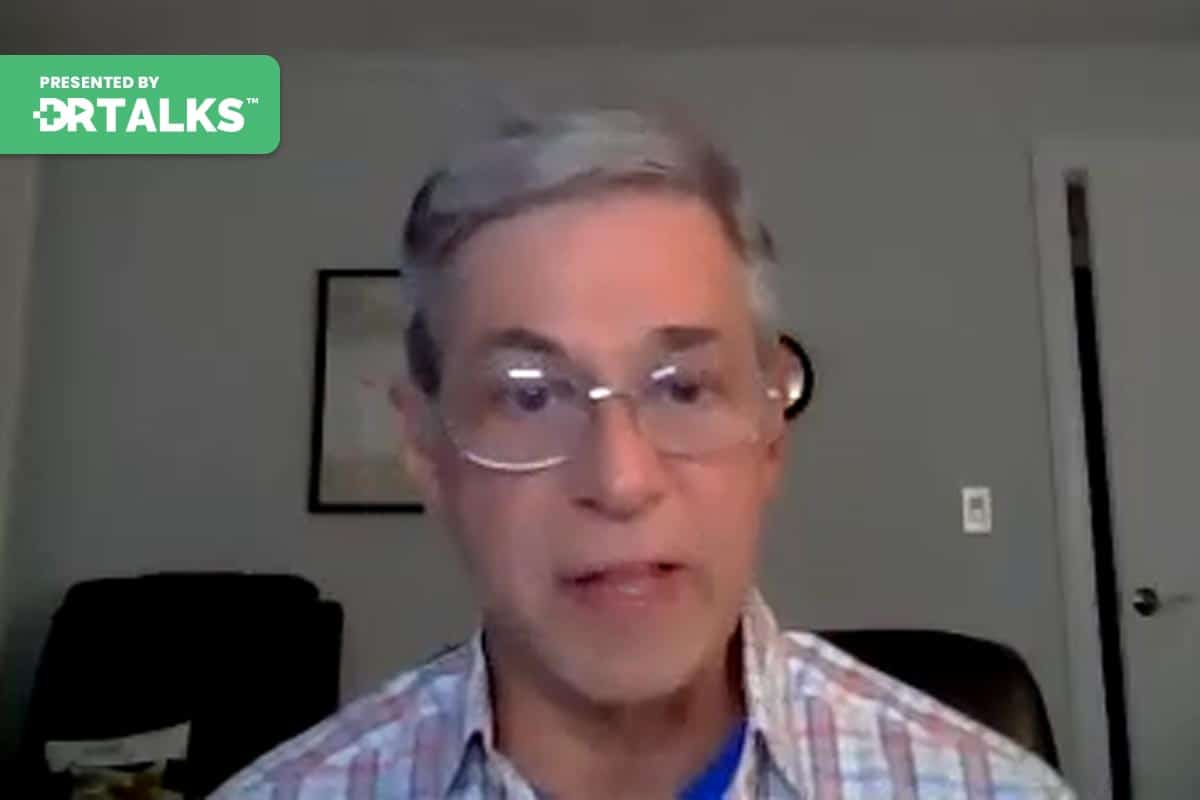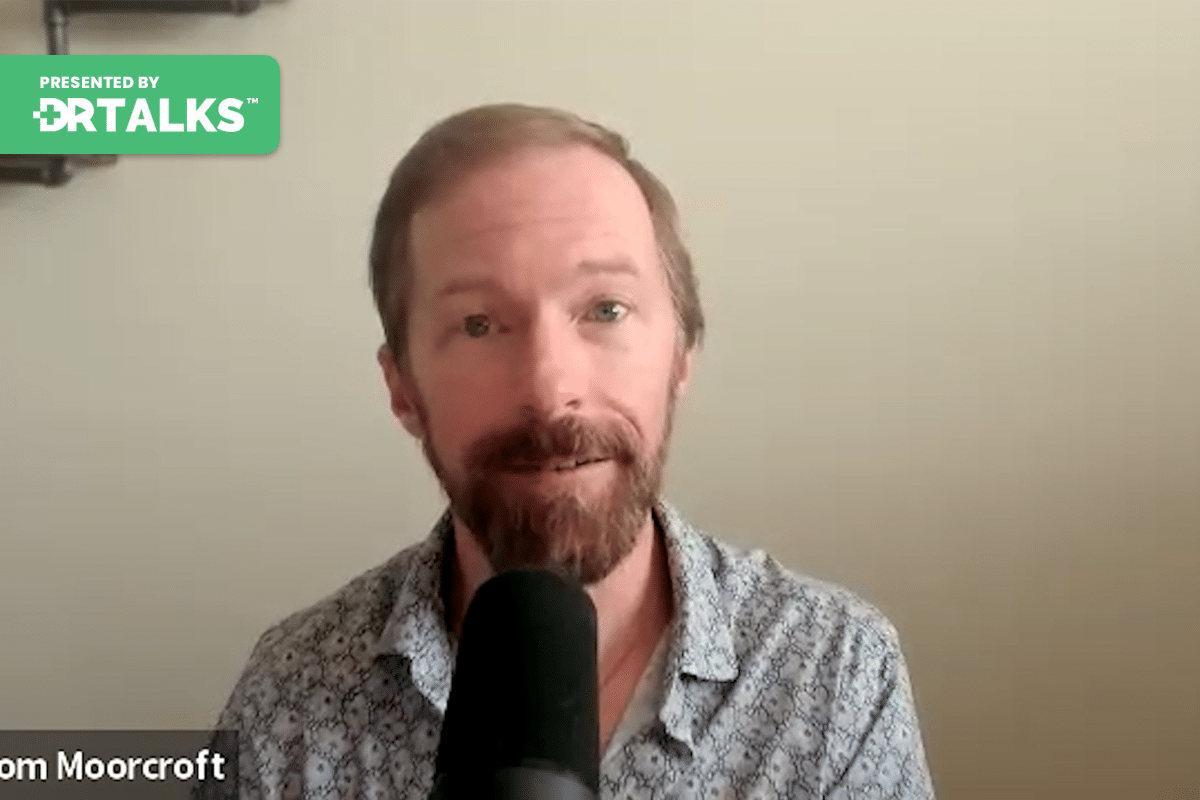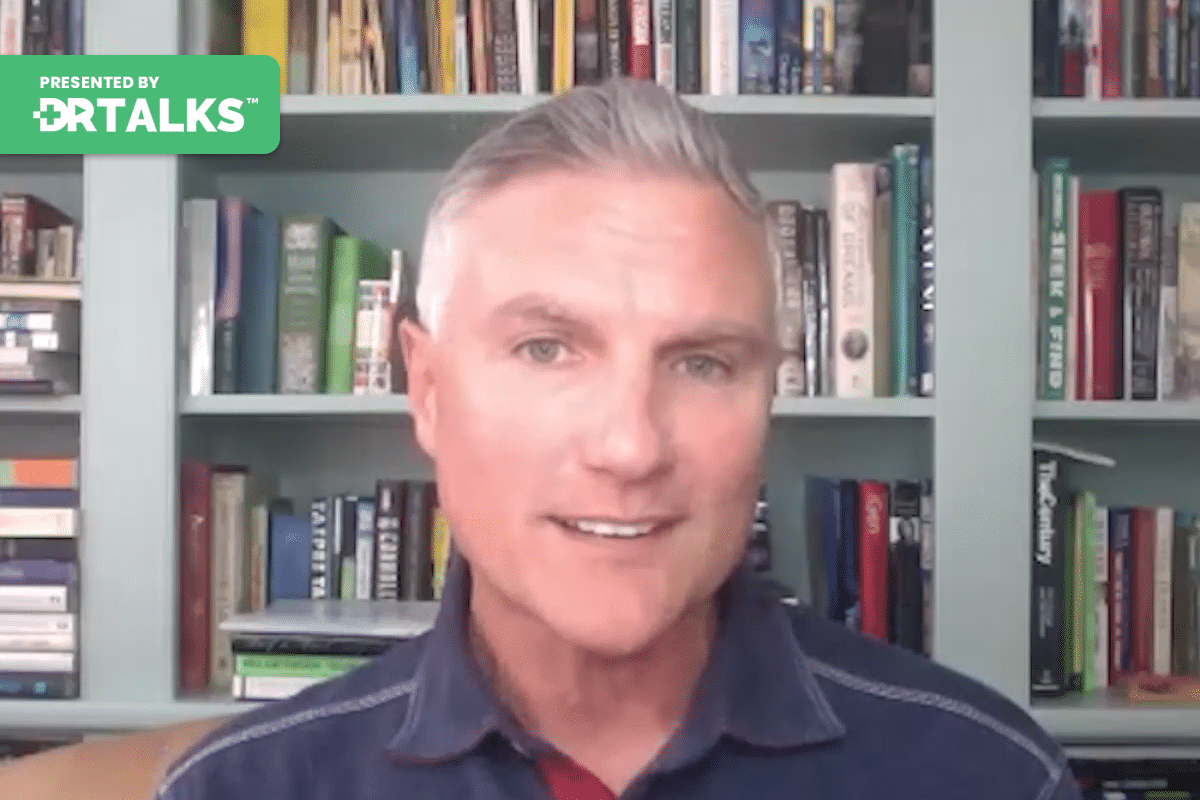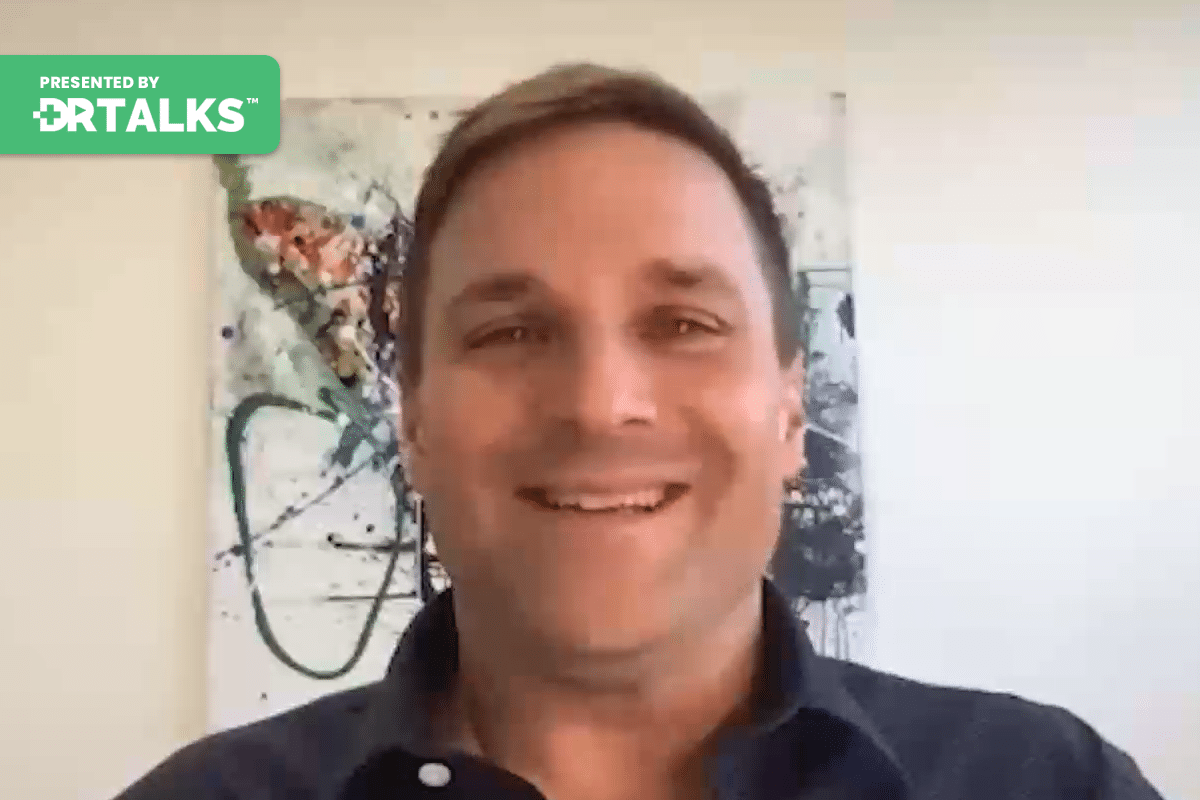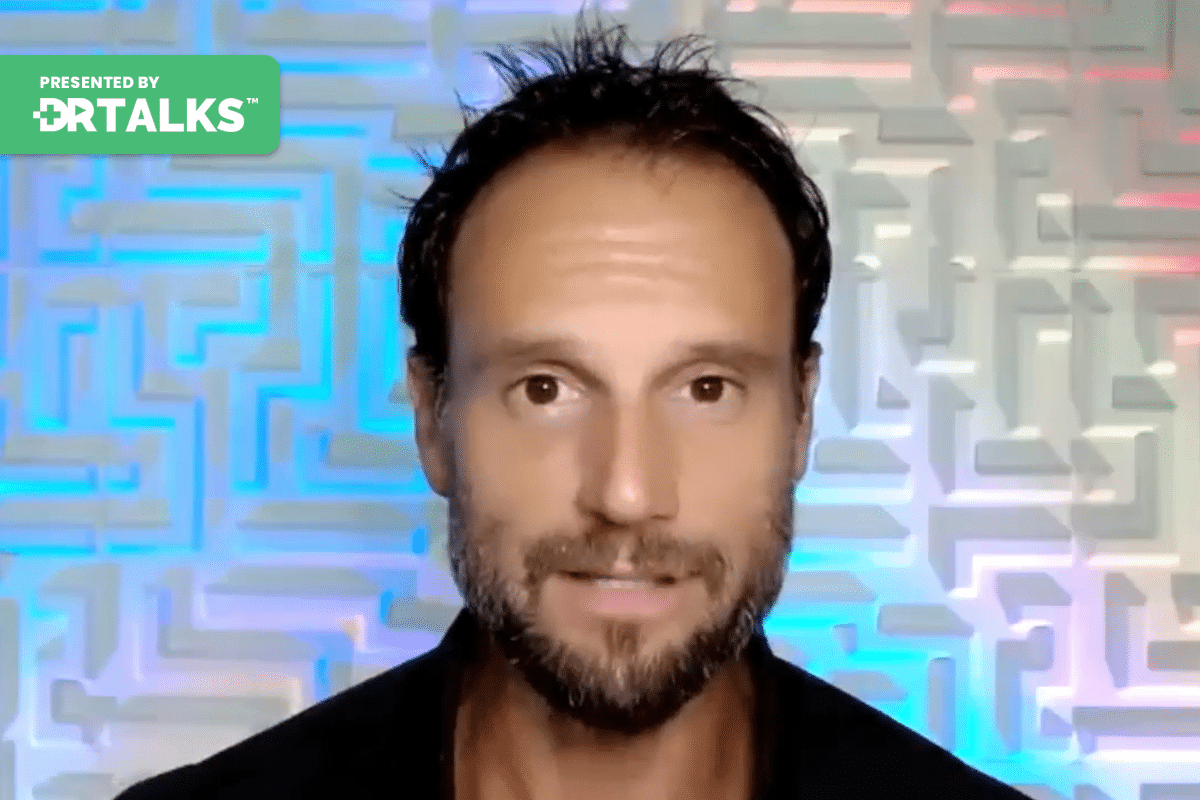Join the discussion below

Dr. Tom treats some of the sickest, most sensitive patients suffering from chronic Lyme disease, tick-borne co-infections, mold illness as well as children with infection-induced autoimmune encephalitis (PANS/PANDAS). He focuses on optimizing the body’s self-healing systems in order to achieve optimal health with simple, natural interventions; utilizing more conventional approaches... Read More

Cynthia is a nurse practitioner, author of the best selling book Intermittent Fasting Transformation: a 2x TEDx speaker, with a second talk having more than 10 million views, and the host of Everyday Wellness Podcast. She is a globally recognized expert in intermittent fasting and women’s health, and her mission... Read More
- What is Intermittent Fasting and is it really something you can use as part of your healing protocol?
- How Intermittent Fasting promotes removal of intracellular pathogens
- Using Intermittent Fasting to optimize thyroid, sex hormone and melatonin levels
- What are the key supplements to successful intermittent fasting
Thomas Moorcroft, DO
Everyone. Dr. Tom Moorcroft, back here with you for this episode of The Healing from Lyme Disease Summit. And today, what a special treat. We are joined by my really good friend Cynthia Thurlow. You may not know her from her multiple TED talks, including one that has over 13 million views on YouTube. Talking about intermittent fasting and when I think about intermittent fasting, I just know of so many misconceptions. Everybody kind of knows it’s good, but it might be too hard, or maybe you don’t know how to use it within the current protocol you’re using. And so really like when, when I think about someone who knows the science because his background as a nurse practitioner is done, cardiology and critical care and knows how to take care of a human being and then how to apply it to prevention and recovery from chronic illness. I can think of no one better than Cynthia to join us and really dove into this topic. So, Cynthia, thanks for coming on the summit with us.
Cynthia Thurlow
Absolutely. I wouldn’t missed it at all. Really looking forward to our conversation today.
Thomas Moorcroft, DO
Yeah, I’m really excited because, you know, it’s like I think we both started in some of these groups at the same time because the our goal is always to get our information out in front of people so that not only we can live our best lives, but they can, too. And I just, you know, but even before we turn the camera on, we’ve had this conversation about how science and this medical background is so critical in understanding how to bring all of this kind of to healthy application and in an individual’s life.
So, I mean, and I’m it’s funny, I’m looking on my computer screen here at the bazillions of accolades here with your intermittent fasting podcast and your everyday wellness podcast. But I want to dove in because once people hear you talking, that’s how they know that, you know, you’re the right person to be listening to in the real deal. So what’s the scoop? Like what brings you to intermittent fasting? You know, everybody here has heard my story about Lyme and the B.S. it forever. But I love to hear the back story of what really got you interested in it and what really made this kind of like your life’s work.
Cynthia Thurlow
Yeah, such a great question. And the true answer is the power of the end of one. So I was the typical forties ish woman. Even with all my medical training, nothing had prepared me for perimenopause, which is the 10 to 15 years preceding menopause. And so I was stuck, you know, for the first time in my adult life, I was weight loss resistant. I couldn’t sleep, I had no energy. I just felt awful. And I really came to intermittent fasting really organically. I read Jason, Dr. Jason Fong’s book, and I thought, you know, if another health care practitioner was recommending this concept that it was probably one that was reasonable for me to entertain. And I always tell people very openly that I didn’t lose the weight immediately, but I did feel a lot more energy.
My sleep improved. I was so clear cognitively, and it was tough to wrap my brain around because what we were taught when we trained years ago was eat to stoke your metabolism. Breakfast is the most important meal of the day. And so for me, coming to intermittent fasting was to heal myself. And then it started to, you know, it was it was an easy access to start talking to my patients about it and talking to clients about it and not really realizing what it would end up being. As you know, a lot of the focus of my work today, but for me, it’s a very personal that is translated into a very kind of professional share and certainly helping people understand that intermittent fasting is not new or novel. It’s designed to be the way that our bodies thrive. They’re not designed to be eating all day long and eating snacks, and many meals were designed to eat less often.
Thomas Moorcroft, DO
You know, it was music to my ears, what I learned about intermittent fasting, because, like, I never ate breakfast. Like, naturally I wasn’t into it. I’m like, why would I want to wake up and fall back to sleep? You know, right after I ate? And everybody’s like, You have to eat the breakfast. And it’s like, I think it’s so important to dispel the myth. I mean, you know, and because it’s so what is it? What is intermittent fat? I mean, to start with, like, what is it? Yeah. Why is it? Why do.
Cynthia Thurlow
It? Yeah. No. And the irony is I had an Italian mom and my mom used to get very upset that I wouldn’t eat breakfast. And I said, I’ve been intermittent fasting really my whole life. I just didn’t realize it. But when we think about the concept or the strategy of intermittent fasting, it’s eating less often. Having a time period during the day when you’re not eating and having a time period in which you do eat. And before people start thinking, that sounds like really obtuse and really hard to manage. Most of the time that you’re fasting, you’re sleeping and understanding that you are eating during the day, you’re not going without eating. But you may decide that, you know, you break your fast at 10 a.m. and you close your feeding window at 6 p.m., and for each one of us we can adjust our feeding and fasting windows based on our lifestyle. That’s the key, is it’s flexible. It’s not designed to be rigid. I’m not a very rigid person. And so I always like people to understand that depending on what’s going on in your life, what life stage you’re in, if you’re a female, the amount of stress you’re under, whether or not your sleep is terrible, whether you’re traveling. I mean, there’s so many variables that can impact this time period in which you’re unfed versus fed and also understanding that intermittent fasting is not starvation. That’s another really important point to kind of emphasize is it’s allowing our bodies to have a degree of digestive rest. It’s really that very basic.
Thomas Moorcroft, DO
So like, I was just thinking like, I’m really never hungry and I eat when I’m hungry. And anybody who knows me, like if I eat before 2 p.m. in the afternoon, it’s like I don’t even think about it any more. But I would say that there’s definitely times where I, you know, I want to eat at 10:00 in the morning and stuff. So what is it at? Well, and I guess the other part I was thinking about, too, is like, is there a bend before we dove in there? Is there a benefit to hunger? I mean, like what is so like? Because I think we were like, oh my God, I got hungry. So that means I need to eat. I’m like, but what is hunger actually signaling in our body?
Cynthia Thurlow
Well, this is another common misnomer, is that a lot of times when we are hungry, if we hear our stomach growl, we could be dehydrated. It could be that simplistic. And when you’re the longer that you’re fasting, the longer period of time that you’re fasting, if these counter regulatory hormones like norepinephrine that are helping to suppress those hunger cues. So there’s true intrinsic hunger like my body is ready to eat that you’re able to carefully distinguish from. I’m bored, I’m stressed, I’m hormonal. You know, it’s the time of the day when I should be eating and I’m not actually hungry. So I think it helps for patients to really be able to differentiate true intrinsic hunger from boredom, dehydration, stress. And many of us eat for reasons beyond just true intrinsic hunger.
And I think when we’re eating chronically, habitually, six, ten, 12 times a day, we lose sight of that mechanism or the communication that our body provides us. And so I think you and I would both agree, you know, years of training and being in hospitals and rounding, you knew when you were really hungry, it was evident because you could usually just power through versus, oh, I’ve got downtime, oh, maybe I have a candy bar. That’s not the kind of hunger we’re talking about. And I think for many, many patients, it’s really enlightening and actually beneficial when they’re able to put those pieces together and say, okay, now I recognize what true intrinsic hunger feels like and also the freedom of not having to worry about. I mean, I was that person. I’d go to the gym, I’d have a meal before and after. I’d be eating in between patients because we were forced to have snacks and mini meals. The freedom of acknowledging you’re going to go 6 hours, 15 hours, 14 hours without eating and you’re going to be just fine, completely fine.
Thomas Moorcroft, DO
In fact, I think you feel better. Yeah, I don’t know. I’m this crazy nerd. Like, I’m like a science nerd and anatomy nerd. But also, I just like basic information. Like, if you like it when you eat in order to digest, you become more parasympathetic. And then in order, if you want to stay awake and focus, you typically you’re generally more sympathetic. And I just know that, like the more I eat, the more groggy and less focused I am.
Cynthia Thurlow
Yeah, well, on the other pieces, you know, putting your macros together in a way that you’re going to optimize blood sugar regulation. And so whether people realize this or not, different types of macronutrient. And so protein, fat and carbohydrates have a different net impact on blood sugar. So if you just eat a carbohydrate in a big bowl of cherries, you have a bunch of chips or ice cream is going to impact your blood sugar differently than if you have protein and fat or protein and carbohydrates. And I find for myself, I know my tell, if I’ve had too many carbs, is I get sleepy after meal. We should feel energized after eating. We should not feel sluggish, we should not feel sleepy. And so I think on a lot of different levels, people feel great in a fasted state because if they’re fat adapted, if their bodies able to effectively utilize either carbohydrates or fats as a fuel source, they can free up special types of fatty acids.
Actually, ketones that are going to diffuse across the blood brain barrier. And ketones are an incredibly efficient use of fuel and that provides a lot of that brain clarity when people talk about how good they feel, you know, by DNF and all these other things that go on in the brain, a lot of it has to do with the fact that your your body’s using this really efficient fuel source. And let me be really clear. We want our bodies to be able to be fuel efficient between carbs and fats. The fat is that long source of fuel. It’s not the quick source like you’re being chased by a rabid animal. It’s the carbohydrates your body’s using versus, you know, you’re at home and maybe you’re working or you’re working on something that requires a lot of intellectual focus. Those are usually the fats, the fats, fatty acids that are going to allow you to have that mental clarity, which to me is probably my number one favorite reason for why I suggest fasting.
Thomas Moorcroft, DO
It’s so interesting because some people are like, what supplement can I take for my brain fog? Can you give me more antibiotics to fix my brain fog? I’m like, Why don’t we go back a little bit and let’s just get some real rocket fuel into the brain. And one of the things that I found to Cynthia that I think it’s interesting is when you look at ketosis, this in creating these ketones, I actually think and I haven’t found anybody who’s been able to figure out a way to research this for you. But a lot of the stuff we talk about in Lyme and Tick-Borne infection is this breaking down of biofilms and then also this removal of intracellular pathogens and then this removal of toxins. So in those three years, I think that getting into ketosis actually will preferentially burn some of these negative biofilms because we know we can preferentially burn adipose tissue. But our brain, which is the fattest organ in the body, that just it’s more like rocket fuel, rather than something that breaks your brain down. What are the benefits you’re seeing? I mean, other than and you talk a lot about hormones and stuff and I want to dove into a minute, but are there are there sort of from a detoxification or just like a you know, a lot of people who are biohackers and stuff are looking at intermittent fasting and and I’m like all these people are looking at longevity, typically are looking at rebooting the foundational pieces of our of our healing. So, I mean, what are the kind of other things that we’re seeing with intermittent fasting that are beneficial for people?
Cynthia Thurlow
Yeah, and I think it’s really important to talk about mitochondrial dysfunction. You know, north of 40, we all have some dysfunctional mitochondria, but especially people that are dealing with chronic disease states, they probably have more dysfunctional mitochondria. And so I always like to talk about autophagy, which is this waste and recycling process in the body. We’re able to, you know, get rid of dysfunctional organelles, mitochondria, etc.. And that’s this upregulation of this process that can allow our bodies to function in a much more optimal stage. And this goes on in this unfed state. You know, I always like to think of autophagy as taking the trash out. You know, if there’s a way to efficiently get rid of stuff that does not belong in our bodies, and certainly someone that’s going through a pathogenic infection, a chronic disease state, this is really important. And it really flies in contrast to the traditional kind of modalities and methodologies we tell our patients.
So in my clinical practice, I have certainly, certainly had many of people I’m working concurrently with, with other providers that are dealing with chronic tick borne illnesses, etc.. And I do find that getting them on a fasting schedule and I think about my cousin who speaks very openly about this, she’s a physician, she’s had chronic Lyme and she’s seen such improvement in her her energy, mental clarity and brain fog with just eating less often and really leaning into a nutrient dense whole food diet. So protein, non-starchy, vegetables, healthy fats. And just that alone has had a huge impact in the way that she perceives the world. So I would agree with you that kind of looking at benefits beyond the changes in body composition and weight loss, which I know are benefit people like to focus on, but a reduction in inflammation and oxidative stress. I know a lot of people don’t understand that chronic inflammation is at the basis of most metabolic diseases that we’re dealing with.
I think a lot about insulin resistance, which is now so common in our society. We’re talking about 93% of Americans right now are dealing with metabolic inflexibility and insulin resistance are really quite significant. And then also, you know, those biophysical markers, improvement in blood pressure and lipids and blood sugar and fasting insulin, and then also thinking about just the benefits that are going on, the gut microbiome, certainly for someone that’s on chronic long term antibiotics therapy, we know they get disruption in the gut microbiome and we know intermittent fasting can help with depending on how long you’re fasting with some stem cell activation and permanent Paneth cell health and other types of things. So really understand that even short term, you know, 16 to 18 hour fast are going to have benefits. And then thinking about longer term fasting depending on, you know, what our patients needs are can have huge net benefits.
Thomas Moorcroft, DO
Is there a particular number that I need to reach? Like because autophagy is the Holy Grail really in chronic infections because most of these infections we’re talking about are felt to be intracellular pathogens. So how do you clean out the intracellular space, either giving you a whole bunch of crap that may or may not get in there, or I just ask your body to kick the stuff out with autophagy and just get it out of the cells, which I thought would probably be an easier way to do it. But is there a number that we’re looking for? Like if I’m just like Average Tom, who is, you know, I’m eating like, you know, three squares a day, plus a snack in between every one because that’s what I’ve been told. How do I start to go in this direction? And what should be my is there a goal?
Cynthia Thurlow
It’s a really great question. Ironically, it’s a question I get asked a lot. So, number one, if you’re going from a standard American diet and you’re a couch potato and you’re eating snacks, you have to remove the snacks first. That’s step number one. And the number two, it’s readjusting your macros. So really making sure you’re hitting your protein macros. I like my patients to eat no less than 100 grams of protein a day and most people are probably half that easily. So 40 to 50 grams of protein is what you’re aiming for as a starting point, then adding in non-starchy vegetables and healthy fats that they’re not part of that protein. So stacking those macros and then you start the fasting piece and maybe you’re just going from dinner to breakfast, maybe you’re just 13, 14 hours is a starting point. That’s a good place to start. And I find for people that are really metabolically unhealthy, it can take 4 to 6 weeks to be able to become fat adapted, to be able to effectively utilize stored fat as a fuel source.
So understanding that the more unhealthy that someone is sometimes it can take a little bit longer and that’s totally okay. The second part of your question is, you know, when does autophagy when do we really know that autophagy is upregulated? And we say there’s some degree of autophagy was short or fast, but after 24 hours, we know that there’s a tremendous uptick in autophagy. Now, the challenges we can’t just do a test. We can’t just go to the lab and have our labs drawn and have it determine like how much autophagy has been upregulated. We don’t know that. So this is based on research, but I would say 24 hours is a good starting point. I do actually like my patients to work up to, you know, anywhere from 24 to 48 hour fast if they tolerate it. But they have to start with baby steps, especially for people that are dealing with a lot of chronic illness. They may have a lot of existing fatigue. They may not be sleeping well. They may not feel like being more physically active because they’re just so tired. So baby steps working your way up to, you know, 24 to 48 hour fast. And then once they’ve mastered those slightly longer fasts, then you can really consider like a 3 to 5 day fast. But I typically for patients who are dealing with a lot of chronic illnesses, I do like to hook in their their primary or their predominant treating physician or nurse practitioner to make sure that we’re all in agreement because there’s a lot of different various variables that can impact the success of someone fasting things as benign as hydration and electrolytes and understanding how to properly support your body during a fast. It’s not the time to go out and do CrossFit if you’re fairly new to longer fast. I’m serious. And it’s also not the time to you know, if you’re not if you’re not sleeping well, then sometimes you have to kind of back down on the fasting hours. But that’s a good kind of starting point for most patients.
Thomas Moorcroft, DO
It’s interesting, too, because if sleep is a thing, I can hear a lot of people go up. I can’t fast because like my sleep is all messed up. I find that the more I fast and personally, the more I eat later in the day closer to bed because I don’t have reflux or a hernia. I sleep so much better if I fast most of the day and I will say I accidentally one day was like I’ve always thought about the more than a day fast and my god, it’s a little too hard and I got home one day and I’m like, all the day just and so not so my family was traveling. I’m like, I don’t want to make anything. So I was like, I’ll just drink some, like electrolyte water and go to bed. And then I woke up the next day I’m like, I feel phenomenal. I’m like, I didn’t I didn’t need for, like, 36 hours by accident. And you feel amazing. Yes. And it goes forward with you.
So. And I would definitely echo what you said. Cynthia’s like, you don’t need to dove in, because one of the things I’m thinking about for a lot of the people that are dealing with Mycotoxins in this part in a life is you are going to detoxify more by following this strategy. So baby steps can actually be what you need. Like a lot of times, like if we over bind someone or we overkill something like, you know, with a new herbal or medication protocol that we just overwhelmed their detox pathway. So it’s just like, hey, why don’t we just, like, take it a little simpler, but this is like optimizing your own detoxification pathways. You do get better sleep once you clear out some of those toxins, when you get better sleep, then you’re clearing out your brain more. So this is all additive and natural. And one of the things I realized about intermittent fasting a really long time ago is it’s free.
Cynthia Thurlow
Yes, free and flexible is definitely, you know, one way to think about it. And I would also add, when we talk about detoxification, opening up those pathways and certainly for people that are going through anti-parasitic or, you know, antimicrobial agents and working in conjunction with you or others, is that there are lots of simple things you can do in conjunction, like dry brushing, sweating, you know, just physical movements, you know, cold therapies. There’s a lot of things that people can do that don’t necessarily or may involve like expensive extra things. I hate the cold. And I tell people all the time, I think that I probably have a genetic polymorphism because I know that they exist for this, but I don’t need to, you know, be in an ice bath. I can do 30 seconds at the end of a cold shower in winter, and I’m still providing some degree of hormones. That’s beneficial stress in the right amount at the right time. And I know that can be very helpful. So understanding that, you know, supporting detoxification doesn’t necessarily mean that you have to have a colonic. It doesn’t necessarily mean you have to go buy one of those plunge pools, although I know it looks really cool on social media when people do that, but I think it’s helpful for people to understand of these are very tangible and very accessible.
Thomas Moorcroft, DO
Yeah, I think it’s so critical. A little bit goes a long way. You don’t have to go buy the $4,000 meat locker or tub. I actually know a lot of people who have those and I know almost no one who uses them more than once in a blue moon for those photos.
Cynthia Thurlow
Like you think you.
Thomas Moorcroft, DO
So other. So what do we do? Like you had mentioned, like are there key sort of supplements in there? Key things that I need to be thinking about, like real basic things, even like you mentioned hydration. Like how do I even because I would suggest that most of the people that come to a practice like mine with like with mom, they’re chronically nutrient deficient, probably because one, they started there with a standard American diet. But two, there’s a lot of wasting of nutrients that occurs in these chronic infections which so where do we start and how do we support ourselves if we are going to be doing some of this fasting?
Cynthia Thurlow
Yeah, I would say first and foremost, hydration and electrolytes. I would say this is without question. I think because of my background in cardiology, I got very savvy with electrolytes ridiculously savvy because I had so many patients with arrhythmias and heart conduction issues. And so I got very savvy. So first and foremost, electrolytes. There’s lots of options that are out there. You want non junk, if I can, I use a brand. I just want to throw out a brand out here element which is Rob Wolfe’s line is excellent. It’s actually flavored most summer flavor with stevia. Now I know stevia for some people, they don’t like the taste of it. They also have unflavored options. I actually like to use the unflavored packet with a little bit of lemon, just kind of squeeze some lemon and drink it with filtered water. I would say magnesium. Magnesium is so underappreciated and so understanding that we are consuming foods that are largely from magnesium depleted soils.
We lose magnesium because of stress along with other types of electrolytes. And so magnesium is absolutely part of that. I also think about things like, well, you know, I think about sleep support. So definitely things like my own acetyl or GABA or L-Theanine and I think can be very, very helpful because I find for a lot of people when they’re dealing with pathogens and things specific to, you know, gut infections that can disrupt sleep, which I know can be a source of analyst frustration, not just to mention the fact, you know, you have women north of 40 years old. I’m sure there’ll be many of them watching this, the replay of this. And by virtue of the fact that their bodies are making less progesterone, they can start having sleep issues that can contribute and exacerbate insomnia, anxiety and depression as well. So I think about just keeping things really simple, especially because so many of these patients are already on a lot of other supplements or medications. So electrolytes, magnesium in particular for additional supplementation. And it doesn’t just have to be orally. You can also use transdermal magnesium like ancient minerals, which you can get on Amazon and is pretty inexpensive.
Thomas Moorcroft, DO
Yeah, nice. I love it. I am actually just thinking of a couple of the brands that are kind of well known like for lower dose electrolytes. I use some matrix electrolytes from bio pure, which is really kind of nice. Definitely a way different ballgame than than element and relight is one that I like to with. I like the watermelon line personally. I’m afraid it’s like I just want to be able to drink it. So I mean, I think there are some definitely some high quality products at one either are unflavored and you can mix them into something already doing or have a flavor that you can tolerate. But I, I would man so important hydration. It’s just such a key piece of that. And I think finding the one that you’ll actually drink.
Cynthia Thurlow
So it’s absolutely in my house. I have teenage boys that are very athletic. And so, you know, they like citrus, they like orange. You know, my husband will get by with grapefruit when Element offers it. Redman’s makes great products. I totally agree. You just want a high quality one. There’s a lot of junk out there you want to avoid sucralose and aspartame, which we now have a really profoundly negative net impact on the gut microbiome as well as insulin sensitivity.
Thomas Moorcroft, DO
So that’s kind of the whole exercise. Industry is so weird. It’s like, Oh, there’s no sugar, so we’re going to put fake stuff that will ruin your microbiome and prevent you from understanding that you’re actually satiated. So you’re going to overeat and that’s stupid. But one of the things, too, that I think comes up a lot and I know that you’ve talked about in terms of what intermittent fasting can do is its impact not only just on your weight and your weight control hormones, but sex hormones, thyroid melatonin. These are things I mean, every single day, a billion times a day, somebody is like my libidos are all my testosterone levels and I don’t have the vitality or my thyroid is a mess because my infections, I can’t sleep. How is intermittent fasting sort of helping to restore some of that balance in these hormones?
Cynthia Thurlow
That’s such an important question. I mean, I’ll address thyroid first and for full disclosure so that everyone knows like I have Hashimoto’s that is very well controlled. But we know that intermittent fasting can actually improve the health of our mitochondria area. And so understanding that if you are not over fasting, not over restricting, not overstretching your body, that intermittent fasting for thyroid health can really help optimize your thyroid even with an autoimmune condition like I have. So that’s number one. When I think about sex hormones, I think we’re a society that is so focused on not getting enough sleep. We’re always on the go. We’re chronically stressed, we’re not resting sufficiently. We’re eating the wrong types of, you know, highly inflammatory foods or drinking too much alcohol. I mean, the list goes on and on and on. But understanding that the number one reason, number one and number two reasons why we have low testosterone, especially for men, number one is insulin resistance. So that’s number one. Number two is exposure to estrogen mimicking chemicals. And so I always like to remind people that if we’re dealing with insulin resistance being the number one reason why most men are dealing with low testosterone, intermittent fasting is going to help you with that. It’s going to help you with insulin sensitivity as as well as adjusting your macronutrients.
And as it pertains to sex hormones. I would also, you know, talk about, you know, progesterone and estrogen for many women up until that, when they go through menopause, which is 12 months without a menstrual cycle, we have fluctuating hormones throughout the month. That’s one of the reasons why I’m very protective of younger women, women who have not yet gone through menopause, helping them understand how to optimize their hormones. And that really speaks to understanding the physiology from the day that you start bleeding up until ovulation. Obviously an oversimplification. This is when estrogen predominates. This is our super power hormone. This is our hormone that allows us to push our workouts.
We can have a lower carbohydrate diet. We can fast longer versus after ovulation when progesterone predominates. This is when I encourage women to kind of back off on fasting, you know, especially the 5 to 7 days preceding their menstrual cycle, really helping them understand that less less stressful physical activity, not focusing as much on as a low carbohydrate diet and understanding that 12 to 13 hours of digestive rest is a really great way to support the body. And then when it comes to melatonin, so melatonin is not just a sleep hormone, it’s this master antioxidant. We make less of it after the age of 40. And I do find for a lot of individuals that their sleep proper, as they’re properly supporting their body with not eating as frequently, getting some physical activity, etc., that all of a sudden their sleep starts to kind of fall back into place. And so melatonin is one of those things I’m a supporter.
People supplementing if they need to, again in conjunction with support of your health care practitioner is certainly very helpful. But also understanding that melatonin is not just about sleep, it’s also this master antioxidant. We’ve got melatonin clocks throughout our digestive system. This is why eating right before bed is detrimental to sleep quality because your body gets in a state where it’s trying to process this bolus of food, it’s suppressing melatonin in an effort to adjust cortisol, to process this food bolus. And so understanding that the 2 to 3 hours before bed, we want to be really careful and conscientious so that we’re not adversely impacting melatonin secretion, indigenously meaning through our own body or exogenous if we take a supplemental melatonin prior to bed.
Thomas Moorcroft, DO
That’s what we need to know, because so much of this is like you could just tweak your day a little bit, tweak your food a little bit, and you can adjust. And I’ve just you just remove like 17 supplements from my protocol if you know, it’s yeah, it’s one of those things where a lot of times all we need to do is know how to optimize the body and do that. So for me to get a benefit from this, because I know that there’s some people taking, you know, medications at breakfast and dinner and some of the medicines that we are using and we have these for a period of time aren’t really conducive to not having food. But I mean, if I were someone who’s one like Emma, if I say do that three, 3 hours before bed and then I sleep for 8 hours and everyone the thing about intermittent fasting that I love is that the easiest way to do it well is to sleep more. So get your asses in bed more and longer and your fast will be easier. But like if I did 3 hours after dinner, went to bed and then I got up 8 hours later, not got 11 hours, maybe I wait one more hour, got 12 and now I got my 12 hours so I could do my meds. And is that enough? 12 hours enough?
Cynthia Thurlow
I mean, really, you need to think about the fact that at a bare minimum, every person should be doing a 12 hour digestive rest. So I think if it’s for a period of time in which someone genuinely needs to be taking those medications on an empty stomach or with food, I always say, you know, there’s ways around it. Like we could take a little bit of MCT oil, which is going to help buffer what you’re taking obviously in conjunction with permission with whomever you’re working with. But Msi2 oil is processed a little differently in the body. So it’s, it’s, it’s directly a sensor. So it’s directly processed in the liver. And it’s, it’s different than taking heavy cream or other types of healthy fat. So sometimes I’ll recommend taking some oil. And let me be very clear, MCT oil, although, you know, it’s Lauric acid, it’s a specific type of, you know, coconut oil. We want to see a variety, which is the purest form.
A little bit goes a long way. So if you’re new to MCT oil, you want to start with a teaspoon. I have people that take two tablespoons without issues, but the concern is that sometimes it can give you some digestive distress. So I would say go low and slow and see how you feel. But I do find for some of my women that need to take medications and they need to take a whether we start with MCT oil and just see how that works for you. And then if that doesn’t work, then, you know, we move on to other things. But that 12 hours is a very beneficial I mean, I have teenage boys, they do not fast, but they have at least 12 hours, not always, more often than not, 10 to 12 hours, because they’re they’re metabolisms are like hummingbirds, but 12 hours for them is a lot of time. But it’s allowing their bodies to repair just like it helps with, you know, adults and older adults.
Thomas Moorcroft, DO
Yeah. And I think it’s so important to be flexible. I know you’ve used that word in different ways multiple times in our conversation. One of the things that I wondered about, like, let’s say I’m not worried about my meds, I can do I need to fast all the time? Like that’s one of the things that like I have a personal opinion about. Well, partly I might have made that up just so that I could support what I want to do in my own life. But yeah, like if I am able to make this kind of more of a lifestyle, I can get a 14 or a 16 hour fast on a regular basis. Should I be doing this all the time or should there be times where I just do something different?
Cynthia Thurlow
I think you need to do what is sustainable, right? So if you were to say, Cynthia, I can commit to four days a week or five days a week, but like seven days a week is not sustainable. You’re still getting benefits. This is where when people are really rigid about intermittent fasting, I find it troubling because it’s not designed to create an eating disorder or an unhealthy relationship with food. So we want to find strategies that allow us to be able to make this a sustainable lifestyle. Like as an example, in the past year I’ve started breaking my fast earlier in the day, but I also closed my fast earlier in the day. I just feel better eating earlier in the day. And so there’s no shame in that. It’s all about figuring out what works for our body. Some days I forget to eat and I know that my husband doesn’t understand that. I get busy, I get caught up in what I’m doing, and then it’s 2:00 and I haven’t eaten, but that’s not my norm.
And so I think that we have to be honest with ourselves about what will work best for ourselves in our lifestyle, and we kind of lean into that without apology. So yes, based on research, there are some fasting regimens that are five to so five days of fasting with two days, you know, two days off. There’s a52 where people are eating their normal meals five days a week and then they have one, you know, 500 calorie meal or less twice a week, which I think that sounds challenging, but it’s all about finding the pattern in the rhythm that is going to align with your lifestyle and allow you to live a life. Right. Like, I travel a lot and I tell people all the time, like, I can take fasting wherever I am, but sometimes I have wider feeding windows, sometimes they’re more narrow. It’s all about finding what works for your lifestyle.
Thomas Moorcroft, DO
And I love it. It is so key in my world and the people I work with to give yourself a little flexibility in the summit. We’ve talked so much about not comparing ourselves to other people because it is they’re doing what’s right for their body and their unique physiology. And I’ve even seen like identical twins who have different physiology. You know, it’s so much goes into it. So I just really want to, you know, put exclamation points and neon signs around flexibility, not being too rigid with yourself and kind of understanding that your body’s going to go through different things at different periods of time. And every once in a while, like on a weekend, my daughter wants to make some breakfast or something at 1030 rather than 130. And I don’t know, I just get so much more out of participating in life that I don’t worry about that rigid window. So I just I love the way you put it all together, Cynthia, as we kind of wrap things together here, are there any pieces about intermittent fasting, particularly as it might pertain to either infections or cleaning up our detox pathways and our hormones? Are these all these come. It’s amazing. All these things that we experience in chronic illness, other people who don’t have a chronic infection are still worried about things. But yeah, are there any things out there that we haven’t touched on or things that you really can share a little bit of hope for people getting better through this intermittent fasting?
Cynthia Thurlow
Yeah, absolutely. I mean, I think that on a lot of different levels, you know, you and I both trained 25 plus years ago. I’m so grateful to know that there are strategies that people can embrace a different stages of their lives, understanding that you have some control over what’s going on. I think when we’re dealing with a chronic illness, an acute illness, I mean, that’s frightening and scary. Sometimes we lose hope. But understanding that a lot of these therapies that we’re talking about are things that you have control over, that you, in conjunction with your training provider, allow you an opportunity to create a personalized, bio, individualized plan so that you will have success. And I know just based on where I was for, gosh, 20 years, I was in a part of my state that was endemic for Lyme as an example. So I saw a lot of Lyme, a lot of tick borne illnesses. And the one thing I used to tell my patients, obviously they weren’t seeing me as their primary provider for dealing with the tick borne illness.
But in cardiology we saw a lot of acute and chronic manifestations of it. And I would always tell them there’s always hope, there are always opportunities that we can lean into to not give up, to know that this is a way that you can honor your body, intermittent fasting as a way that you can honor body that will work collaboratively to the work that you’re doing with your health care professional to address that health borne illness, the Lyme illness, and as a Lyme survivor myself, it really, you know, I’m so grateful to have had the opportunity to connect with your community. Tom and the summit, because I think on a lot of different levels, we as providers have just made things so complicated. And when we get back to basics, we get back to basics the way that our bodies are intrinsically designed to thrive. We can see really profound benefit. So yes, eating less often can be part of your strategy to heal from Lyme and other tick borne illnesses.
Thomas Moorcroft, DO
I love it. Intrinsic, thriving. It’s so good that, like I talked about all the time, I was talking about this crazy thing called your body’s ability to self-heal and self-regulate. It’s like, why do we not like part of my mission in the summit and why I’m so honored and grateful that you joined us and shared all this amazing wisdom and experience is I want to give people back the control that they need. Because my personal experience healing so many of the people that I’ve worked with, the more that you’re able to do for yourself on your own and reignite that self-healing within your body, the more likely when you get the treatments that your body needs from a medical provider, they’re going to work better and you’re going to be on them less. So you have less side effects and you get back to live in your amazing life and doing the things you haven’t been able to do. So, Cynthia, I just from the bottom of my heart, thank you so much for sharing all this with our community. I’m sure there’s going to be a gazillion people who want to learn how to do intermittent fasting the right way. I’m sure there’s many ways, but I kind of think you’ve got it nailed because you have that balance of the research and the clinical experience with being a patient and working closely with people. And just so if they want to reach out to and get involved and learn more about what you’re doing, how can people find you?
Cynthia Thurlow
Thank you, Tom. It’s really been a pleasure to connect. Easiest way is probably on my website so www.cynthiathurlow.com. I am active on Instagram. I’m a little snarky on Twitter. I’m also on Facebook. We’ve got a free Facebook group called Intermittent Fasting Lifestyle Backslash, my name. I have a book behind me, Intermittent Fasting Transformation, which I’m really proud of. It’s been out since March of 2022 and I have two podcast, but everyday wellness podcasts of which I’m particularly happy about. Tom has been a guest on it, is on iTunes and all your regular outlets, Spotify, etc. And then I co-host the Intermittent Fasting Podcast and Melanie Avalon and you can get lots of interesting different perspectives. We’re two women at two different life stages and answer all sorts of listener questions, but I’d love for you to connect with me.
Thomas Moorcroft, DO
Awesome. Well, and I’m going to make sure that we in our Summit Resource page put links to all the stuff you just talked about. So you don’t have to worry if you didn’t hear what they just said or didn’t write it all down. We’ve got it for you. Just head over to the research stage. And Cynthia Thurlow, congratulations on the book. Thank you so much for being here and sharing all this amazing information and getting all of this information out to the world. Because, like the common sense approach to reigniting health and healing in your body is like, let’s start there. And so that’s why I was just so blessed to have you here with us. Thanks again for being here.
Cynthia Thurlow
Thanks so much for having me. Tom.
Thomas Moorcroft, DO
Yeah, and everyone, thanks for joining us. As you know, the healing from Lyme Disease Summit is really this way for me to help get you in front of the people who are changing the way we look at how we’re using the ancient sciences of how your body actually works, putting it together with all this kind of up to date science and then looking at it through the lens of the unique individual that you are empowering you to take control back over your healing. And so thank you for joining us for this conversation that I know did so much of that. And I look forward to seeing you in the next episode of The Healing from Lyme Summit.
Downloads

